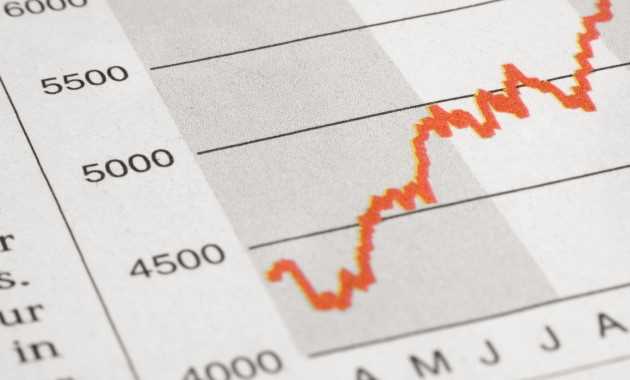(CercleFinance.com) – After two days of soaring (+1.4% Wednesday and +1.4% Thursday), the Paris stock exchange radically reversed steam and fell by almost -2% towards 6,580: the results of the past week (4 sessions only) turns negative.
The index was penalized by the pullback in the airline sector (Airbus -3.4%) and the luxury sector: Kering fell by 4.5%, LVMH by -1.8% and Hermes lost around -1.6%.
Equities have suffered since Thursday evening (on Wall Street) from the sudden rise in bond yields that occurred the day before in the middle of the afternoon (+10Pts on US T-Bonds, +6Pts on Bunds) which raises fears of an increase in prices the cost of corporate financing and, by extension, a possible slowdown in growth.
The US indices start the session down as expected with -1.5% below 33.300 on the Dow Jones and the S&P500 and -1.3%.
Note the break in a very important support on Google/Alphabet.
In terms of US figures, the most anticipated publication was that of the ISM for ‘services’: it fell from 58 to 54.7, with a marked slowdown in activity in the leisure/hotel/catering sectors.
As for the composite PMI of S&P Global, it shows a decline at 55.1 in flash estimate, after 57.7 in March.
The yield on ten-year US government bonds remains in contact with the highest since the end of 2018, at nearly 2.900% (-1.7Pts), our OATs see their yield peak at 1.401% (+1.5Pts), the Bunds show +2 Pts at 0.943% (at their highest for 4 years).
“The major central banks are still keeping the markets in suspense, in particular the European Central Bank (ECB),” explains César Perez Ruiz, chief investment officer and CIO of Pictet Wealth Management.
Yesterday evening, Jerome Powell prepared the markets to see 3 successive tightenings of +50Pts of the Fed’s key rate by mid-summer.
In this context marked by increasingly threatening inflationary risks, investors learned this morning of the composite flash PMI for overall activity in France. It recovered from 56.3 in March to 57.5 in April, signaling the strongest expansion in French private sector activity since January 2018.
The increase in overall activity resulted from a more favorable environment for demand, especially in services with the easing of health restrictions (tourism, catering/hotel sector), while shortages (auto sector) and the war in Ukraine limited the rise in manufacturing output.
‘Given the current level of inflation, efforts to revive activity after the pandemic will hardly succeed in offsetting the negative effects of rising prices’, nevertheless warns Joe Hayes, senior economist at S&P Global .
‘Over the past month, pressures on energy prices have not
disappeared, the disruptions in supply chains are getting worse”, underline the economists of Oddo BHF.
On the foreign exchange front, the Euro fell -0.4% towards 1.0800, or -1.3% in 24 hours (1.0940 at its highest the day before).
In the news of French companies, Renault Group (+1%) published sales of 9.7 billion euros for the first quarter, down 2.7% (-0.7% at exchange rates and constant perimeter), for worldwide sales of 552,000 vehicles in a market context that is still very disturbed.
EssilorLuxottica (-3.1%) announces first quarter 2022 revenue of 5.61 billion euros, up 38.1% (+33.1% at constant exchange rates). On a comparable basis, it increased by 15.7% (+11.5% at constant exchange rates).
Finally, Casino posted revenue of 7.5 billion euros for the first three months of 2022, up 3.2% on a comparable basis (after -0.4% in the last quarter of 2021), and in total growth of 4.7% (-0.1% in the last quarter of 2021).
Copyright © 2022 CercleFinance.com. All rights reserved.
Did you like this article ? Share it with your friends with the buttons below.




